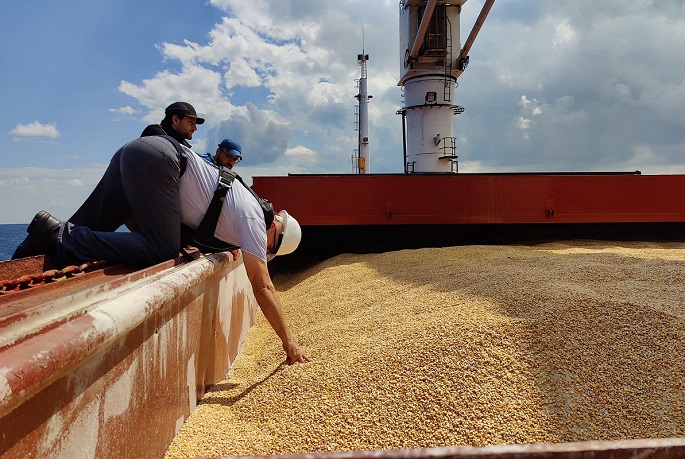Finland to contribute Ukraine grain shipment to Somalia
Published : 09 Nov 2022, 00:14
Finland will support the grain shipments of the World Food Programme (WFP) from Ukraine to Somalia, said the Ministry for Foreign Affairs in a press release on Tuesday.
At the same time, Finland will increase its humanitarian assistance to the Horn of Africa, where more than 20 million people are in need of urgent food aid.
Global food security has deteriorated further during 2022. Russia’s invasion of Ukraine has deteriorated access to food and raised prices. The COVID-19 pandemic and, in some places, the effects of climate change hinder access to food, too. The Food and Agriculture Organisation (FAO) and the World Food Programme (WFP) estimate that up to 222 million people could suffer from acute food insecurity in 53 countries.
The situation is particularly severe in the Horn of Africa, which is suffering from a record-breaking drought after a fifth consecutive failed rainy season.
More than 20 million people need food aid. The countries of the Horn of Africa are particularly dependent on grain imports from Russia and Ukraine, which is why Russia’s invasion of Ukraine has such a devastating impact on the region.
Finland is allocating EUR 15.7 million in humanitarian assistance to the region. From that sum, nearly EUR 7 million will be channelled through the WFP to help facilitate the transport of Ukrainian grain to Somalia.
“It is critically important that the shipping of grain from Ukraine to Horn of Africa can continue. We support the World Food Programme in this,” said Minister for Development Cooperation and Foreign Trade Ville Skinnari.
Finland’s humanitarian assistance is delivered by the UN Refugee Agency (UNCHR), the Finnish Red Cross and the International Committee of the Red Cross (ICRC).
The focus of the assistance is food security, but it is also used to protect refugees. The Horn of Africa is a major junction of migration, and large numbers of people move back and forth within the region. The decreasing levels of food aid affect the 3.5 million refugees in the region, too.
“Our humanitarian assistance will make it possible to give people shelter, clean water and health services. There is a pressing shortage of them both in the region’s communities and in the refugee camps,” Skinnari said.


